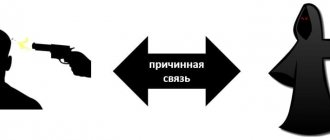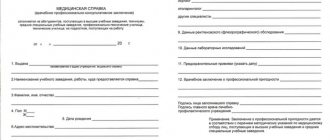Family, motherhood and childhood are protected by the state; this provision is reflected in the Main Law of the country - the Constitution of the Russian Federation. The responsibilities of parents include protecting the rights and legitimate interests of their children. Legal representatives do not have the right to cause harm to the mental and physical health of minor children.
Physical violence against a child is one of the types of abuse, along with mental violence and assault on sexual integrity.
Important! If you yourself are looking into your own case involving the beating of children by parents, then you should remember that:
|
Where to go if neighbors beat a child?
It all depends on the specific situation.
If a child is severely beaten in your presence, call the police and wait for an order. Employees of the Ministry of Internal Affairs will record the fact of violence and take him to the hospital for examination. The forensic expert's report will show what injuries the child received and what type of liability the parents can be held liable for. The child will be temporarily isolated, and the perpetrators of the crime will have their parental rights limited. In the future, complete deprivation of rights to children is possible.
When you are just guessing about the beating, you should contact:
- to the local police officer - he will check and open a criminal case;
- to the guardianship and trusteeship authorities - they will conduct an inspection, if necessary, involve the police and file a claim for deprivation of parental rights;
- to the prosecutor's office - he will deal with the situation in a dysfunctional family, and also monitor the work of the police and guardianship authorities;
- to the Ombudsman for Children's Rights - get acquainted with the situation in the family, send requests and requests for verification to the police, guardianship or prosecutor's office (the longest route).
Some turn to the media for help. However, it must be understood that this is an open judgment. At the same time, a public defender can become a victim of criminal prosecution.
If you see parents beating a child, call the police. If you suspect domestic violence, contact guardianship.
What signs indicate domestic violence?
Checking a dysfunctional family will be required if:
- in the neighboring apartment there is often shouting and children’s crying is heard;
- the child looks exhausted, fearful, with bruises and abrasions;
- the mother or father avoids talking about the psychological and physical state of their child;
- friends or classmates say that he is being beaten;
- Other neighbors gossip about abusive parents.
Domestic violence is often hidden, but it can be identified.
Guardianship complaint against parents
As a rule, in order to contact an institution it is necessary to file a complaint with all the necessary details. The laws state that parents, as well as guardians who have taken into their family for upbringing, must properly fulfill the responsibilities for raising and maintaining children. A complaint against the authorities may be made if signs of beatings are found in kindergartens or other institutions. When drawing up documents, you must follow all the rules of drafting that apply to an official document. A document that is drawn up in an improper form may not be accepted by the guardianship authorities and may be sent for correction. And this may take additional time.
What should a teenager who is beaten at home do?
A child who is being abused at home should first look to his community for help. For example, at school. It is enough to turn to a teacher who inspires trust. The teacher will independently notify the guardianship authorities. Employees will check and notify the police.
You can share with friends. They will tell their parents or relatives who are ready to help the child in a difficult situation. If there are no people who would like to open up, you can go to the emergency room with signs of beatings. It is not necessary to tell what happened - the doctors themselves will report the injuries to the police, who will find out everything.
Many teenagers are afraid to tell others about their torment in the family, experiencing constant pain and humiliation. There is no need to hide your fear and physical injuries. There are many caring people around who are ready to help: teachers, acquaintances, neighbors. They will contact law enforcement agencies, who will provide you with assistance and protection. You can also call special hotline numbers and tell about your problem.
The unified all-Russian helpline for children, adolescents and their parents is 88002000122.
Complaint to the guardianship authorities against the father
Divorce proceedings are complex and lead to all sorts of problems. Often, when resolving disputes, the child remains with the mother. But it also happens that the father can take this position. If it is clear that the child is not studying well and is not doing well, or is skipping school, then in this case, too, you can contact the guardianship authorities with a complaint against the father. In addition, the father should not interfere with the child’s communication. The child's adolescence is a period of the child's formation, so it is very important to pay attention to his behavior and how the parent monitors the child. An example of a sample complaint can be seen here.
Article for child abuse
For child abuse, the perpetrators face inevitable punishment. If a teenager has been repeatedly subjected to beatings that did not cause harm to health, the perpetrator faces punishment under Art. 6.1.1 Code of Administrative Offenses of the Russian Federation:
- fine from 5 thousand to 30 thousand rubles;
- arrest up to 15 days;
- compulsory work from 60 to 120 hours.
If the parent has already been prosecuted under an administrative article, a repeated violation will already face criminal liability under Art. 116.1 of the Criminal Code of the Russian Federation. He will face tougher sanctions: the fine will increase to 40 thousand rubles, compulsory work - up to 200 hours, arrest - up to three months. Another preventive measure is being introduced - correctional labor for up to six months.
For domestic violence, people are first brought to administrative and then criminal liability.
The matter takes a different turn if the child is harmed. A negligent parent will immediately be charged with a criminal offense:
- for minor harm - under Art. 115 of the Criminal Code of the Russian Federation;
- for harm of moderate severity - under Art. 112 of the Criminal Code of the Russian Federation;
- for grievous harm - under Art. 111 of the Criminal Code of the Russian Federation.
The extent of damage caused is determined by forensic medical examination. The perpetrator faces not only a criminal record, but also a real prison sentence of up to 15 years.
Another way of bullying children, for which you can end up in the dock, is torture. Sanctions are established by Art. 117 of the Criminal Code of the Russian Federation. For intentionally inflicting physical or mental suffering on a minor through systematic beatings or violent acts, the person faces imprisonment from 3 to 7 years.
Parents will also be punished for cruel treatment under Art. 156 of the Criminal Code of the Russian Federation:
- fine up to 100 thousand rubles. or in the amount of the perpetrator’s income for a period of up to a year;
- compulsory work up to 440 hours;
- correctional labor for up to two years;
- forced labor or imprisonment for up to three years.
Anyone guilty of beating a child can be sent to prison for a long time.
Legislative regulation
- International regulations;
- Hague Convention 1961;
- Minsk Convention 1993;
- Constitution of the Russian Federation, art. 7, art. 38;
- Civil Code of the Russian Federation Art. 34;
- Family Code of the Russian Federation;
- Criminal Code of the Russian Federation Art. 156;
- Federal Law of April 24, 2008 N 48-FZ “On Guardianship and Trusteeship”, Art. 7, 8.24;
- Decree of the Government of the Russian Federation of November 17, 2010 N 927 “On certain issues of guardianship and trusteeship in relation to adult incompetent or partially incompetent citizens”
Summarize
When a child is beaten in the family, it shows. Traces of beatings cannot be hidden. And there are caring people who are ready to help a child who has suffered from violence. They turn to various structures that can legally protect the child and punish abusive parents. Assault and abuse of a defenseless child is a crime, so the punishment for beating children is severe. However, not only strangers, but also the child himself can hold parents accountable by talking about his problem. For this purpose, there are helplines and various centers if a teenager is afraid to contact law enforcement agencies.
Parents beat their child: what to do?
About 40% of serious crimes involving violence occur in families in Russia. Inappropriate parents beat their own children. As a rule, neighbors know about this, but they don’t always understand where to go.
The passivity of many people is also due to the fact that criminal law does not contain sanctions for failure to report the beating of children. But the legislation contains many opportunities to influence such negligent parents.
At the same time, the neighbors themselves do not need to do anything other than report the facts of the beating to government agencies that are authorized to deal with such issues.
Filling out a report of battery
When contacting the police, the officer will definitely ask you to write a statement. He will tell you the form and rules for filling it out himself. The application is written in any form addressed to the head of the police department. Can be filled out in printed form or by hand.
The application must include the following information:
- name of the institution where the document is submitted.
- Last name and initials of the applicant (this can be a child, guardian or parent).
- Last name, initials, contact details (registration, passport, if available) of the victim (child).
- Full name of the accused and his details (if the accused is known). If the beating was carried out by a stranger, then his distinctive data (birthmarks, clothing, height, build) is indicated in the statement. If this is also unknown, the statement indicates that the beating was inflicted by a stranger, whom it was not possible to examine.
- The circumstances under which the incident occurred. Details. Indicating the exact time and date.
- Details of witnesses, if any were present at the crime scene.
- Request for punishment: criminal or administrative liability.
- Date and signature of the applicant.
The application can be submitted by the child himself, his guardian or parent. The law does not limit the age of the citizen who applies. The application must be accepted at any police station or court. After this, the citizen must be given a coupon confirming that the application has been accepted.
After the beating has been removed and a report has been received from the medical institution, you must write a statement. There is no statutory deadline for filing an application.
A certificate from the emergency room will be evidence, since it contains the date. But it is advisable to contact the police as quickly as possible. This will speed up the consideration of the case.
There is no need to register an application or pay a state fee. A police officer accepts documents from the applicant and issues a ticket (this is the actual registration). The service is free.
You can submit the document directly to the police or magistrate. If the offender is known (for example, a husband beat a child), then you need to contact the judges directly. In this case, there is no need to look for the violator. If the person who beat the child is unknown, you need to contact the police.
They cannot refuse to accept a statement of beatings. For some reasons, they may refuse to initiate a criminal case.
The picture shows an example of a document:
What else can you do?
There are rehabilitation centers in the country that help women with children who find themselves in difficult life situations and who have become victims of domestic violence. Lawyers and psychologists work at such centers, so there is someone to help. Free legal advice can also be obtained on our website: online or by phone.
There is also a toll-free helpline throughout the country: 8 . Both adults and children can call here.
You can print a leaflet with helplines, addresses of rehabilitation centers and a story at the entrance on the notice board.
If there is a sane local police officer working at the station, you can contact him: describe the situation, ask him to come with a check, since the child may be in danger.
The main thing you shouldn’t do is ignore what’s happening and try to solve the problem yourself.
It is worth contacting the regulatory authorities with a statement. Facebook
Alarm bells
There are several signs that clearly indicate that a child is being beaten at home:
- Depressed state Such children are depressed, often cry for no reason, and come to school in a bad mood.
- High anxiety Children who are regularly beaten are fearful and nervous. They flinch at sharp sounds or sudden touches. For example, teachers like to pat you on the head or pat you on the back when passing between desks. If a child jerks inappropriately when touched, this may be a sign that there is violence in his family.
- Panic fear of a bad grade It is a very bad sign if a child directly begs: “Please, please, don’t give a D, don’t give a C.” Teachers often say “what they deserve”, believing that they are acting fairly. But if an ordinary student is simply upset because of a bad grade, then a student who is physically punished at home falls into hysterics. Some are even beaten for getting a B.
I once walked along the corridor at school and saw a child simply shaking, he was insane, asking not to give a bad mark. And the teacher thinks that this is all manipulation. I say: “How do you imagine manipulation? Is this an artist of large and small theaters, a People’s Artist of the USSR, to play something like that?” This cannot be played. You need to put your ideas about justice far away and not give this child a bad grade. What kind of manipulation is this? There is trouble...










